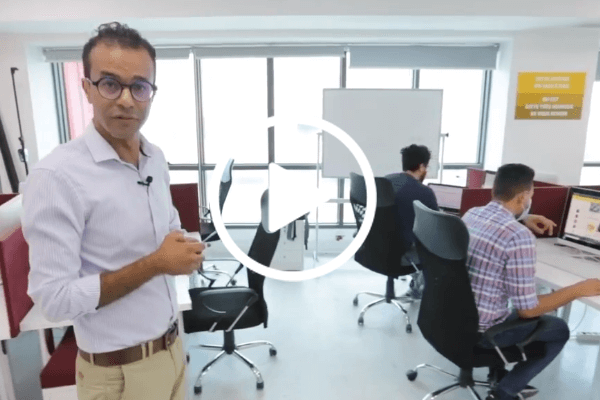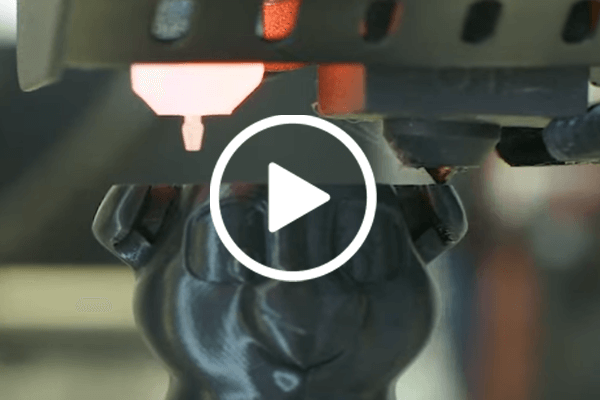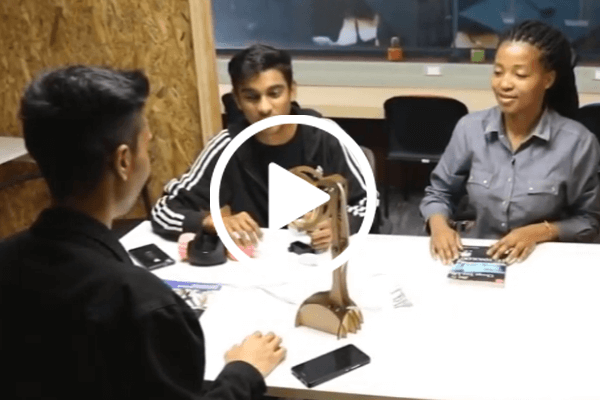COLLECTIVE LAB
To encourage entrepreneurial practice and promote a sustainable ecosystem in search of innovation and employability, Honoris launched the COLLECTIVE LAB in Tunisia. COLLECTIVE LAB is a hub dedicated to entrepreneurs of ideas for innovative projects wishing to create their own businesses and is open to all students and to the different stages of advancement: from ideas to fundraising.
Student support at COLLECTIVE LAB includes the following training modules: Business Model Canvas, Business Plan, Pitching, Finance, Marketing, Entrepreneurship legislation, HR Management, Leadership Soft Skills, and Mentoring.
Key successes of the COLLECTIVE LAB to date
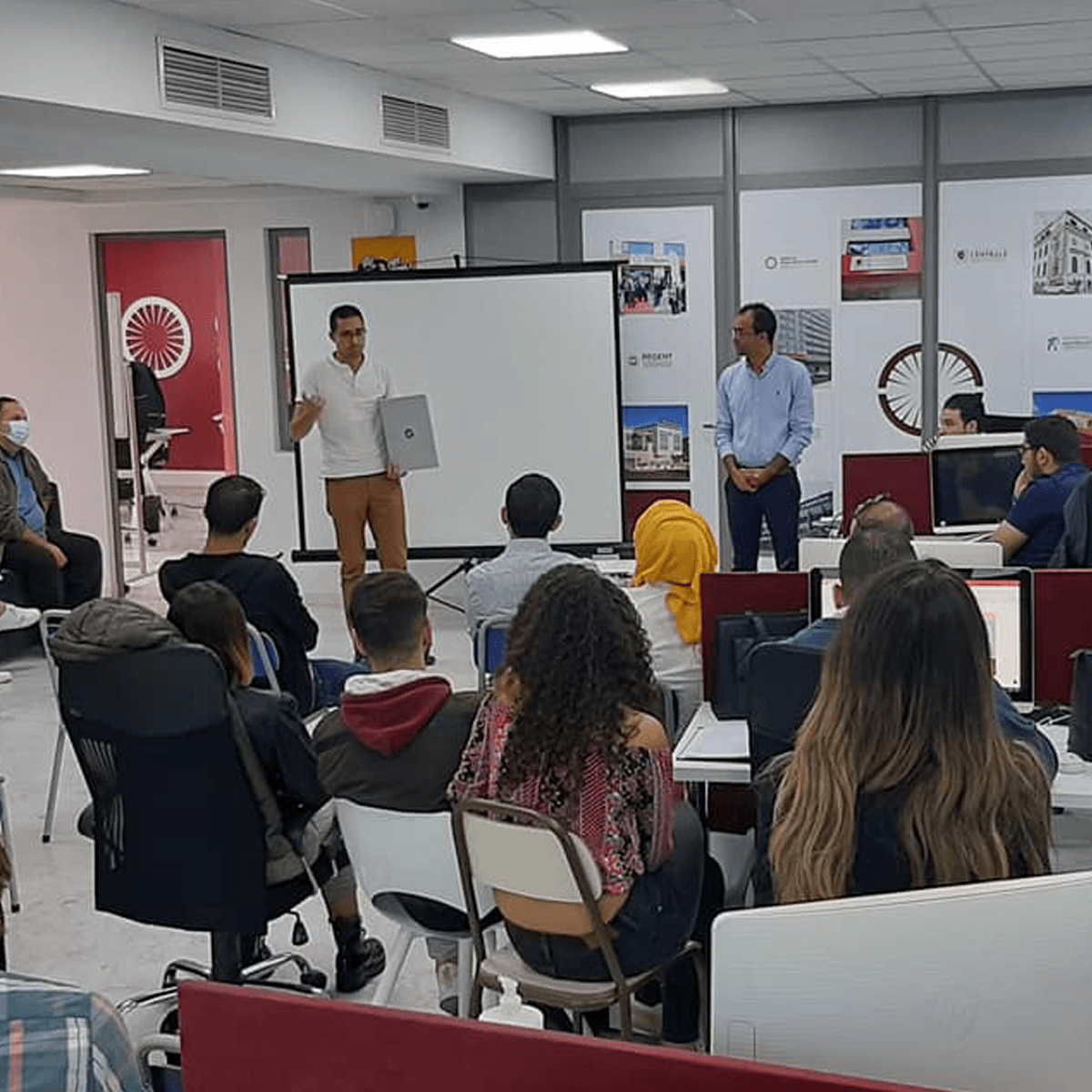
Showcasing entrepreneurial success
The following three examples demonstrate the role and support of the COLLECTIVE LAB in promoting entrepreneurial excellence.
VDOC
“The staff of COLLECTIVE LAB were so friendly; they happily welcomed us and helped us whenever we needed the support. The growth of our project has increased thanks to the mentoring and the encouragement of the coaches, which helped us as entrepreneurs to improve and acquire new skills in management, pitching, marketing and leadership”.
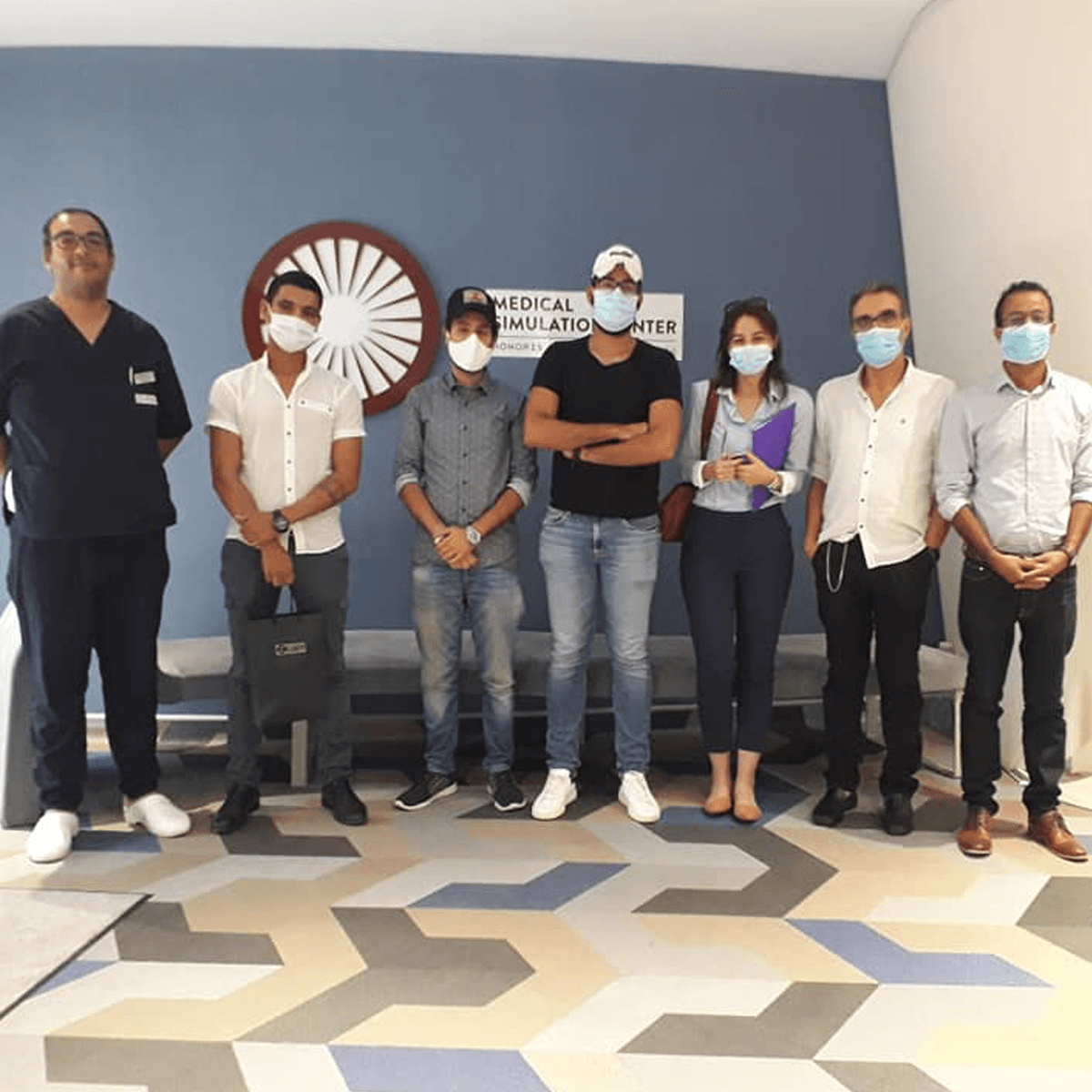
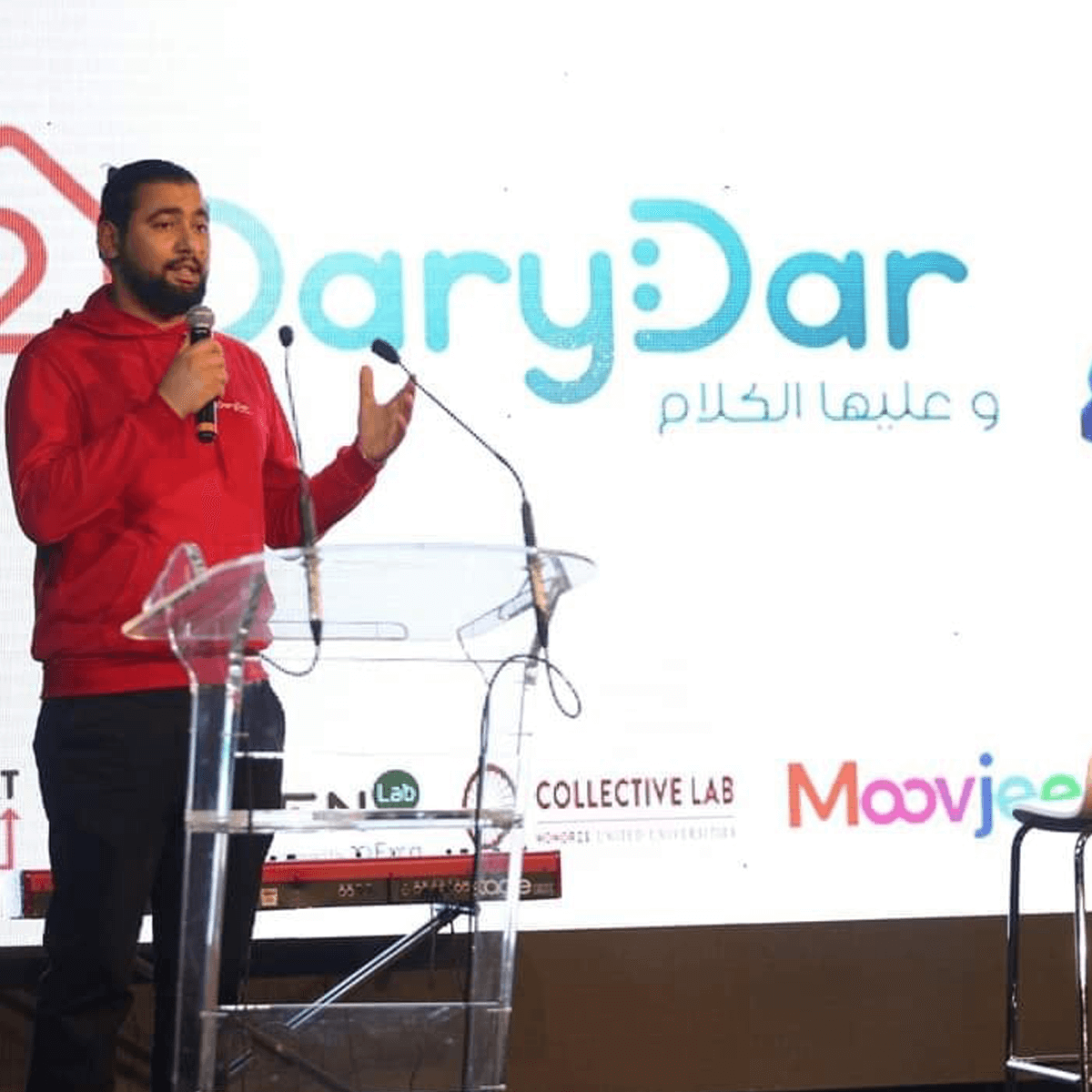
DaryDar
“The staff of COLLECTIVE LAB were so friendly; they happily welcomed us and helped us whenever we needed the support. The growth of our project has increased thanks to the mentoring and the encouragement of the coaches, which helped us as entrepreneurs to improve and acquire new skills in management, pitching, marketing and leadership”.
A complete platform for connecting service seekers and providers. The customer will be accompanied from the start by advisers, ending with a highly qualified technician available at short notice. Impact points of the DaryDar project: >>read more
>>read moreHerb’in
“COLLECTIVE LAB allowed me to develop a simple idea into an impactful and profitable project. “I participated in the 1st cohort call for applications with a simple idea, but thanks to the COLLECTIVELAB team and the WIKIstartup coaches, we managed to develop a pitch deck and a bankable business plan.We worked on design thinking, marketing strategy, go-to marketing strategy, the financial part and my project was the laureate of 1st cohort. Thanks to our participation in the 1st cohort, Herb'in has managed to develop a proof of concept (POC) and a well-developed prototype”.
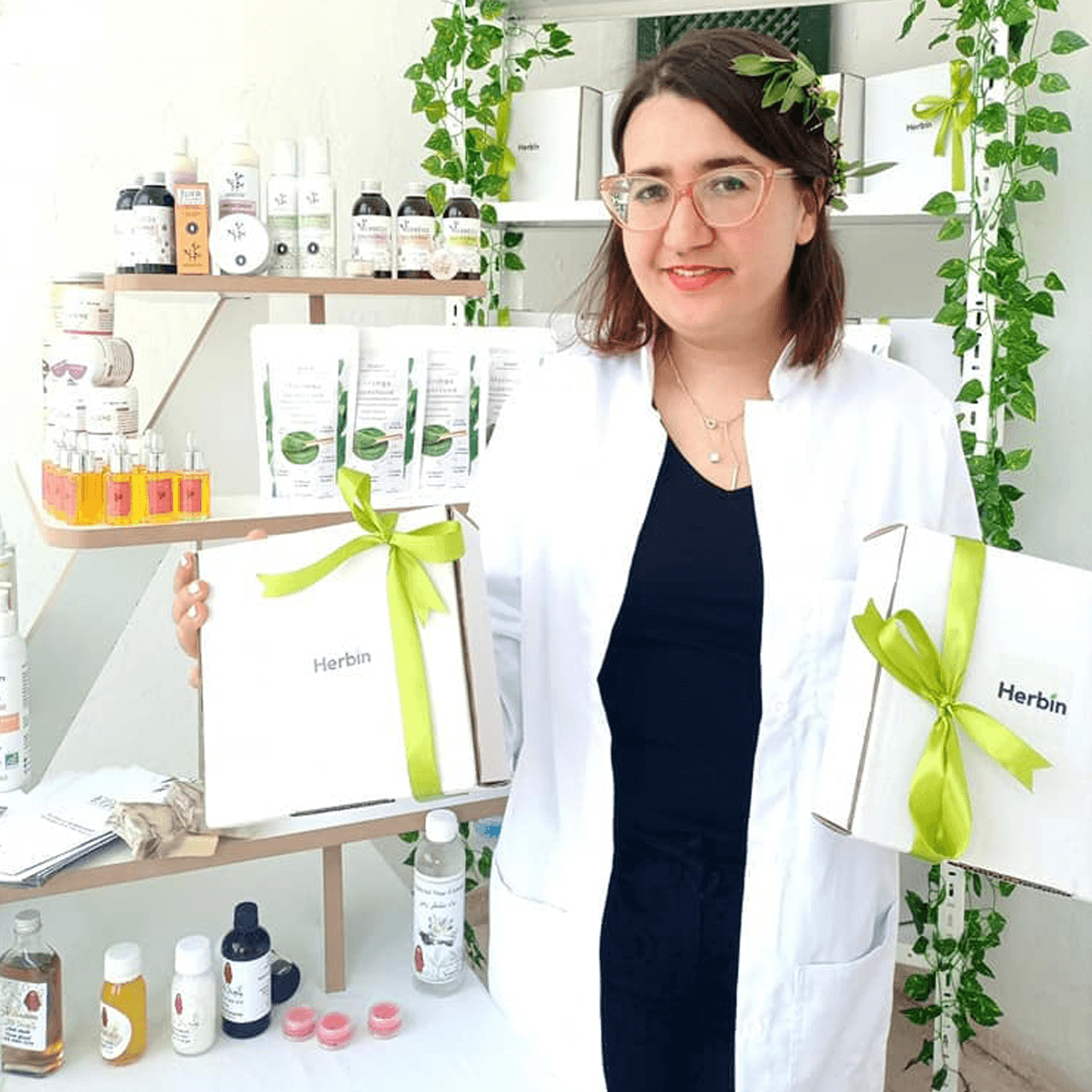
iLeadLAB
REGENT Business School’s iLeadLAB is the Employability unit of the institution, aimed at empowering its students with core skills and competencies to creatively bridge the gap between education and the demands of the 21st century workplace. It is a direct response to the accelerated pace of global technological transformation.
Digital advancements, breakthroughs, and pioneering developments are happening quickly, plunging the global workplace into a space where it’s no longer enough to effectively play by the rules. As such, graduates must boldly innovate and step-change to remain relevant in dynamic, digitally-driven environments, which is what the iLeadLAB sets out to help them achieve.
A total of 882 students are participating in 34 programs currently offered through iLeadLabs.
This creative space offers courses to students to develop ideas and learn to produce anything. >>read more
BENEFITS OF iLeadLAB
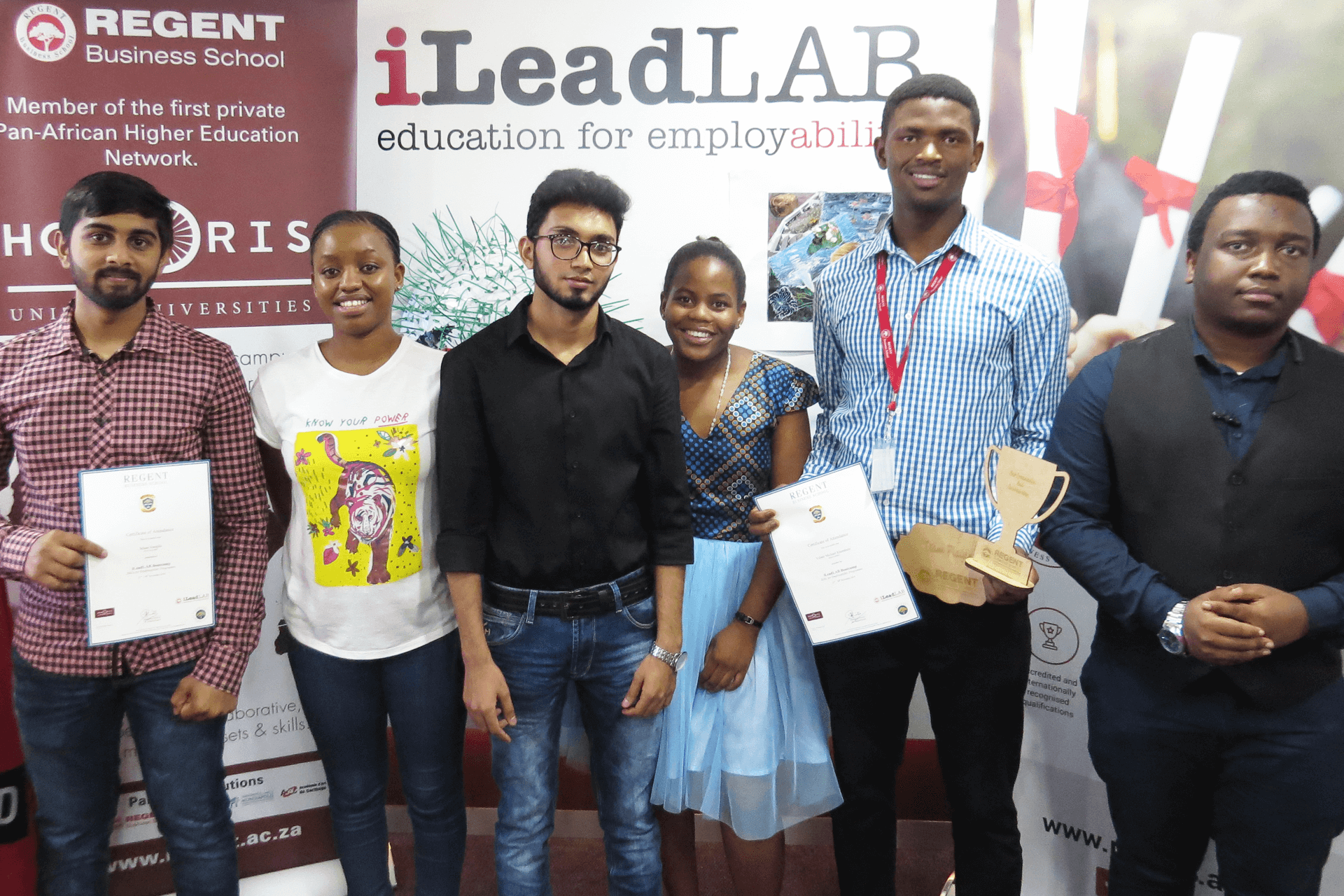
Student success
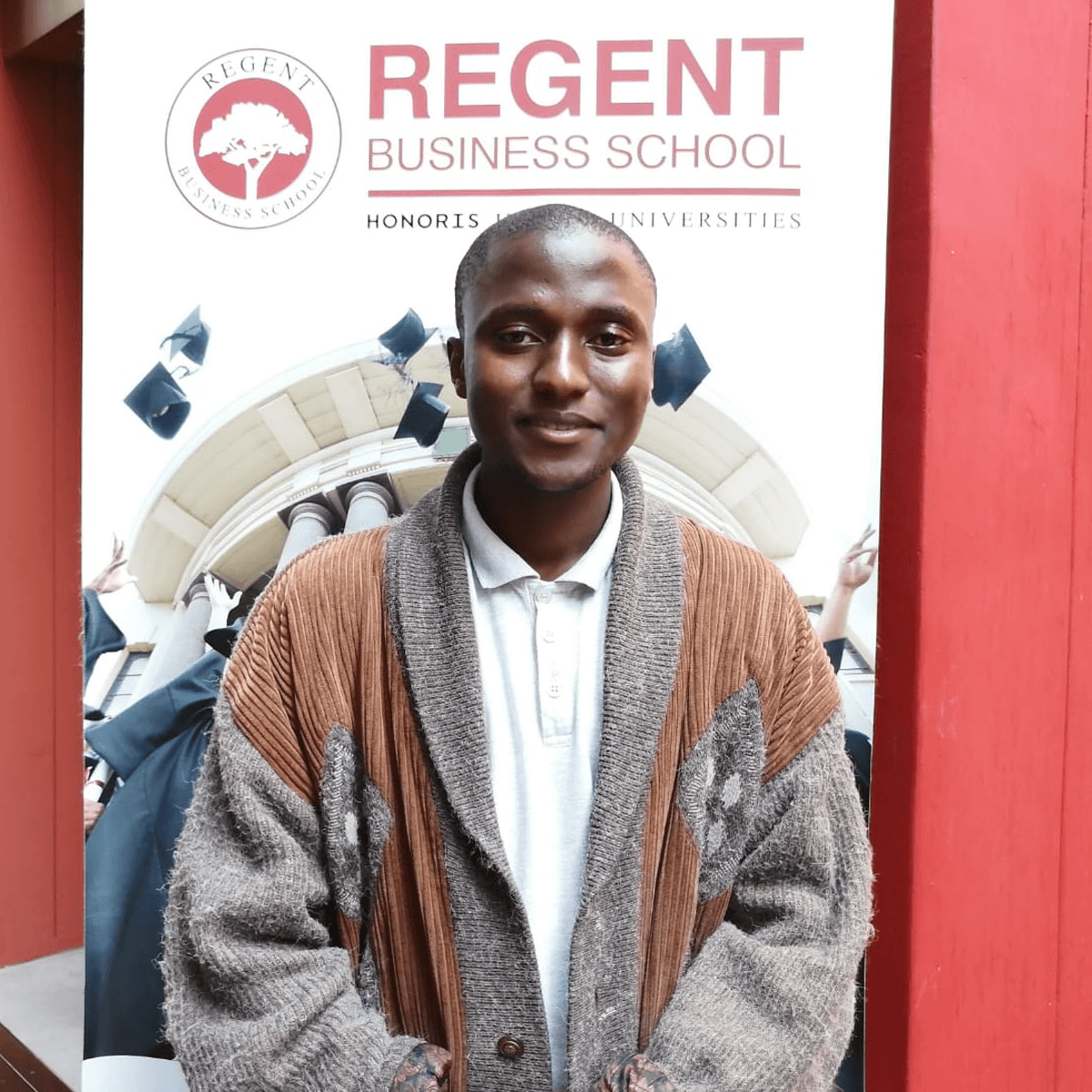
Vuyani Mbongiseni Dlamini
“There are limitless opportunities - The ability to create anything our minds conceive can be brought to life through laser cutting and 3D Printing. The first day was quite interesting as we got to meet new people from different walks of life, who want to better themselves and solve problems we experience as Africans in the African Continent. The program needs to be communicated to the masses, I am just in awe of a program of this caliber and nature. The presenters are excellent, passionate and function well in a multicultural audience”.
Amanda Mhlongo
"Amanda Mhlongo came through as a student to study at REGENT Business School as part of an NPO backed training program. As part of her studies, she was introduced to Laser Cutting at the iLeadLAB. Within a short space of time Amanda familiarized herself with the use of the laser cutter and realized the potential this technology may offer to her to generate an income and perhaps even start a small business. She used her time at the iLeadLAB constructively and produced her first batch of personalized keyrings for her new clients.She went on to sell these keyrings for an excellent profit (>300%). >>read more

redHUB
Creating an entrepreneurial mindset through REGENT Enterprise Development hub
redHUB: A place for global and innovative minds to thrive
redHUB is an entrepreneurial and innovation program aimed at supporting start-ups and small business development.
The hub seeks to provide business owners and entrepreneurs in the making with services, including business incubation, mentorship, help with accessing finance and business training.
Five beauticians are celebrating after winning R10 000 each in the RBS’ redHUB “shark tank” competition that was held at the end of September 2021. Simran Mathura, Mercy Rutendo Membe, Danielle Wakelin, Neo Patience Maboe, and Naomi Natalie Thubisi, were the winners of the business pitch contest and they all expressed how they will use their winnings to start their own small businesses. These young ladies were part of a cohort of nine final-year students from the Face-to-Face Beauty and Makeup Academy who participated in a six-month pilot program run by RBS’ redHUB unit. >>read more
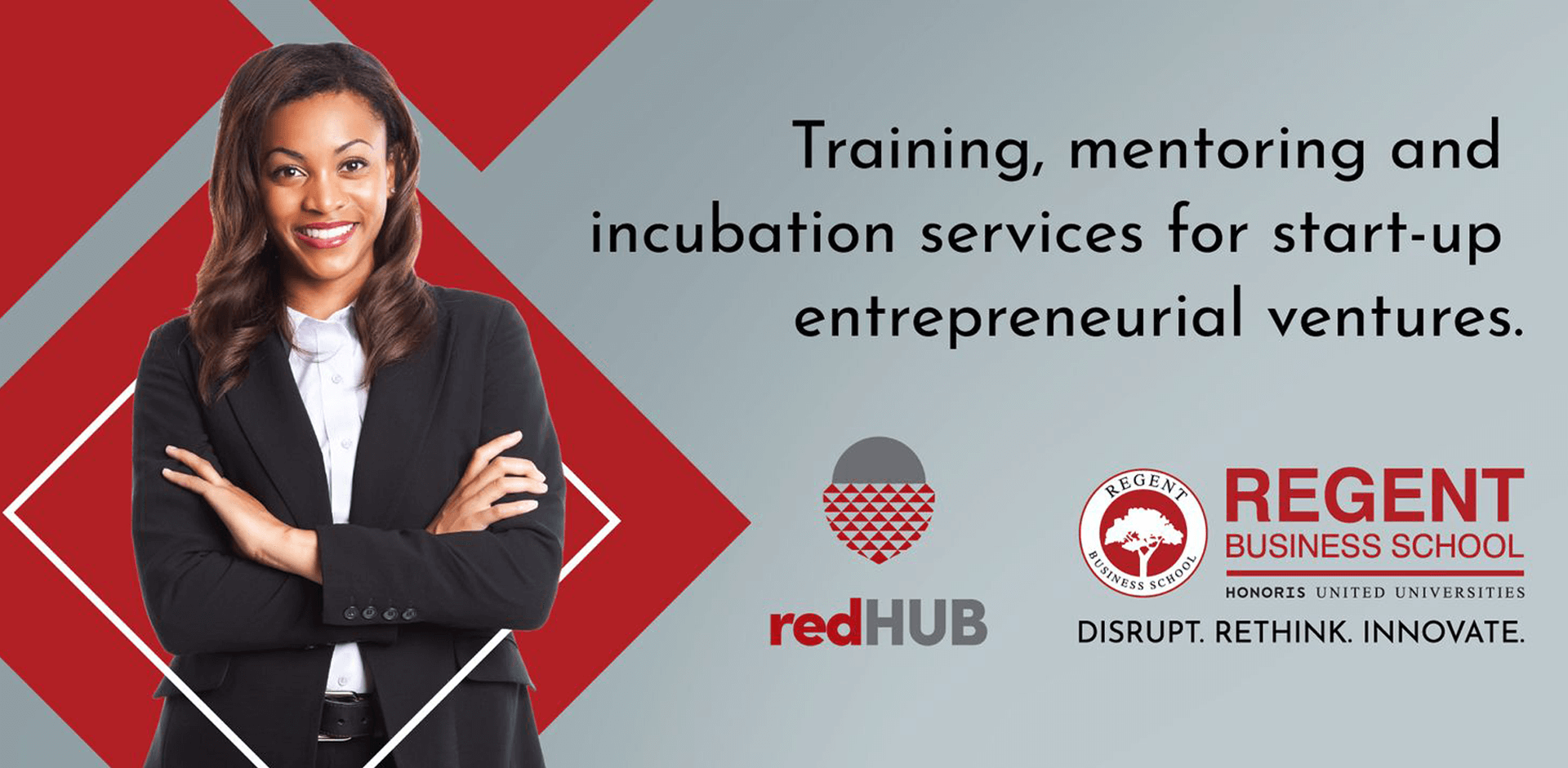
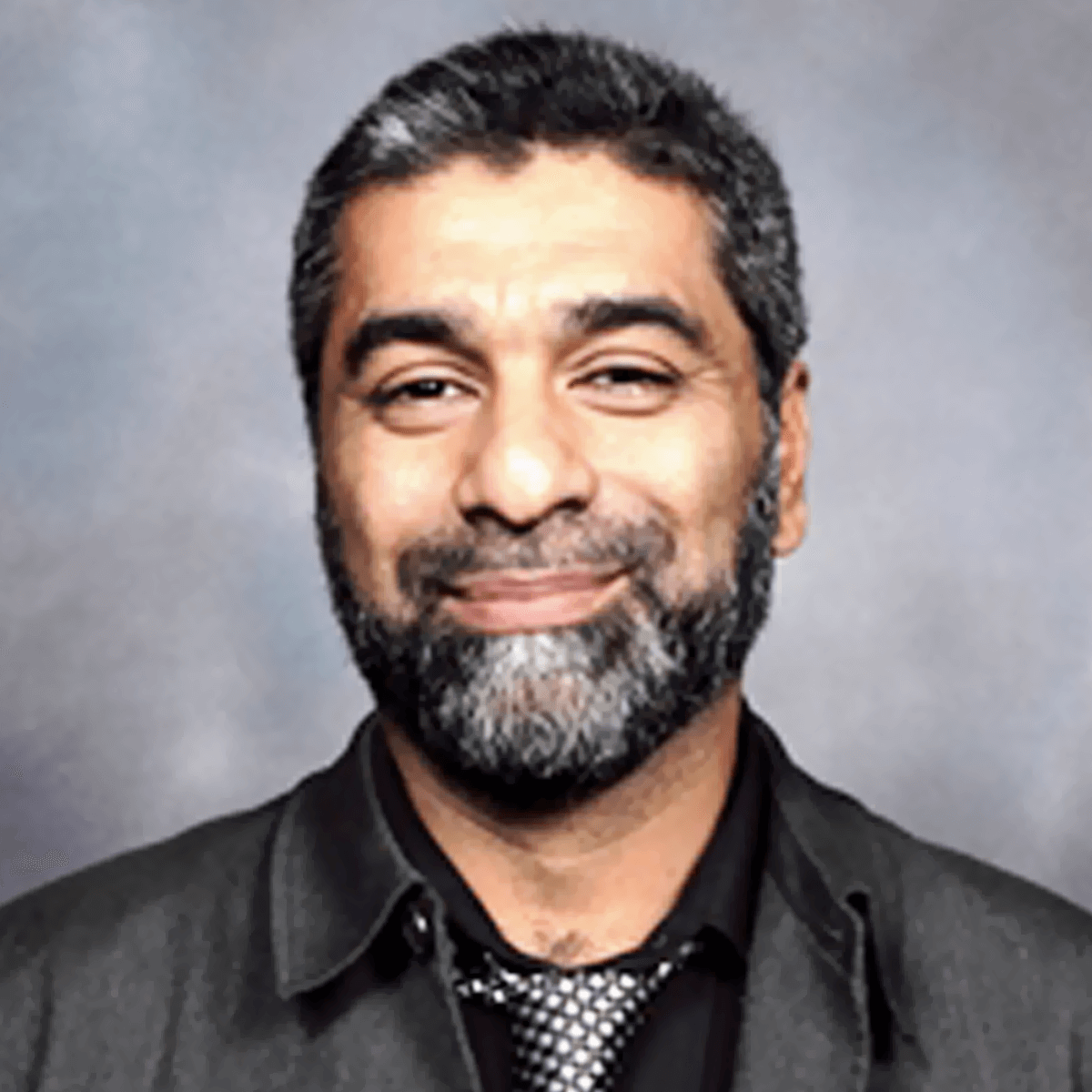
Hoosen Essof, Operations Manager – REGENT Business School
“We take people with technical training, in this case as beauticians, and give them the business know-how to start their own business and employ people.”
What two of our winners had to say
Naomi Thubisi
“Thank you so much for the opportunity. I am highly grateful to REGENT Business School for offering this short course... >>read more
Simran Mathura
I would like to thank those involved in making this business course a possibility. >>read more
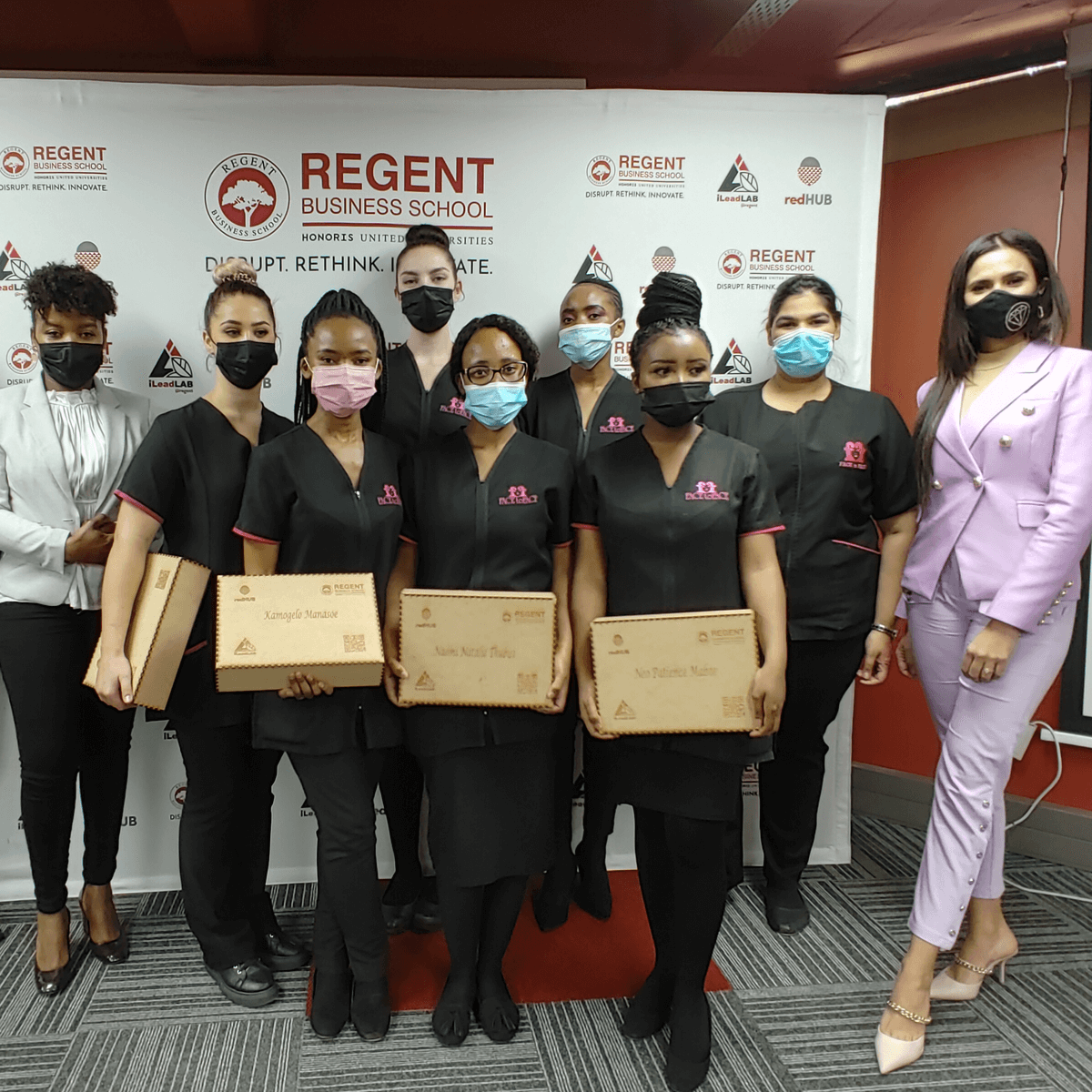
Afrilabs Network
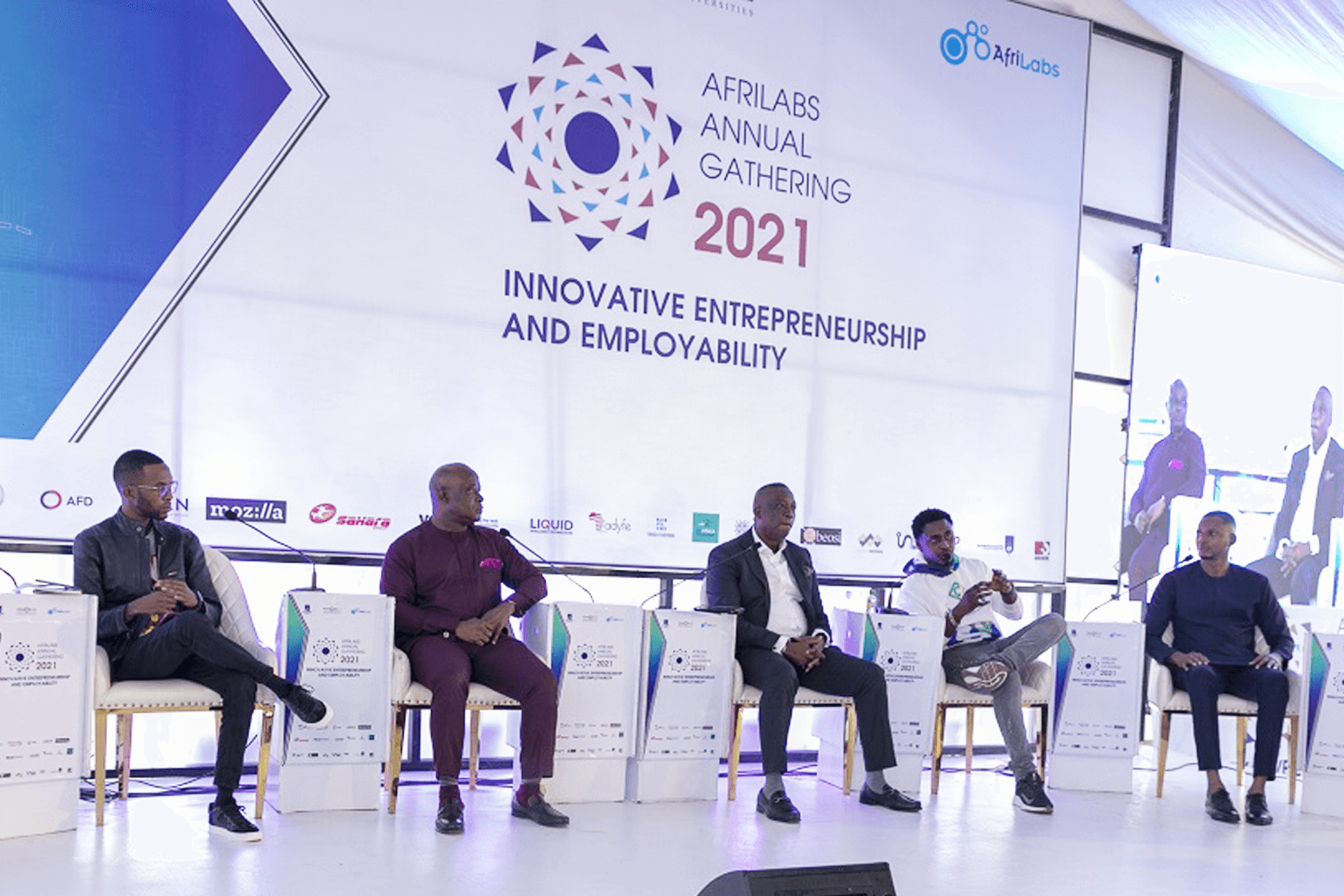
The AfriLabs network consists of 292 technology and innovation centers across 49 countries in Africa. It was founded in 2011 and its mission is to build a community around the rapidly emerging technology hubs in Africa.
AfriLabs is based in Abuja, Nigeria, and provides financing, mentoring, networking opportunities, and other capacity-building resources for high-potential entrepreneurs who will promote Africa’s economic growth and social development. Currently, 30 innovative projects are underway in the areas of HealthTech, e-Commerce, AgriTech, and EdTech.
A Tunisian innovation hub founded in 2019 – the Honoris COLLECTIVE LAB – is part of the AfriLabs network. In addition, RedHUB - REGENT Enterprise development Hub is part of Afrilabs.
Development of WIL and entrepreneurship in vocational training
The aim of this project is to support the development of entrepreneurship in vocational training, and is coordinated by the Ministry of Employment and Vocational Training with the support of the European Training Foundation (ETF).
IMSET and AAC are now known as entrepreneurial centers and are members of ''National Network of Entrepreneurial Centers'' in Tunisia. As such, they are committed to ensuring the advancement of technical and vocational training for their students, who then will be able to positively impact society as a whole. >>read more
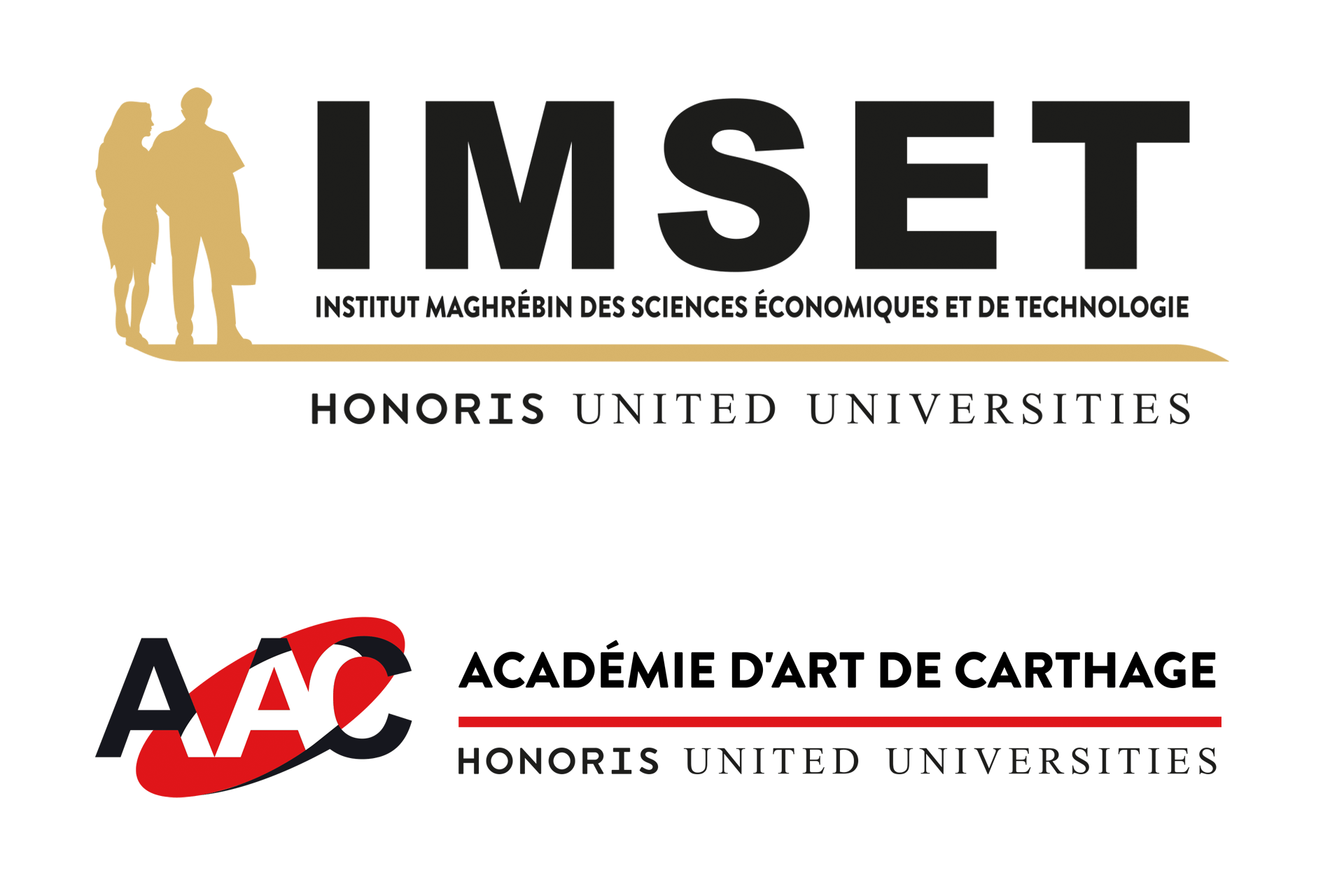
Network of Practice Enterprises in Tunisia (ReeT):
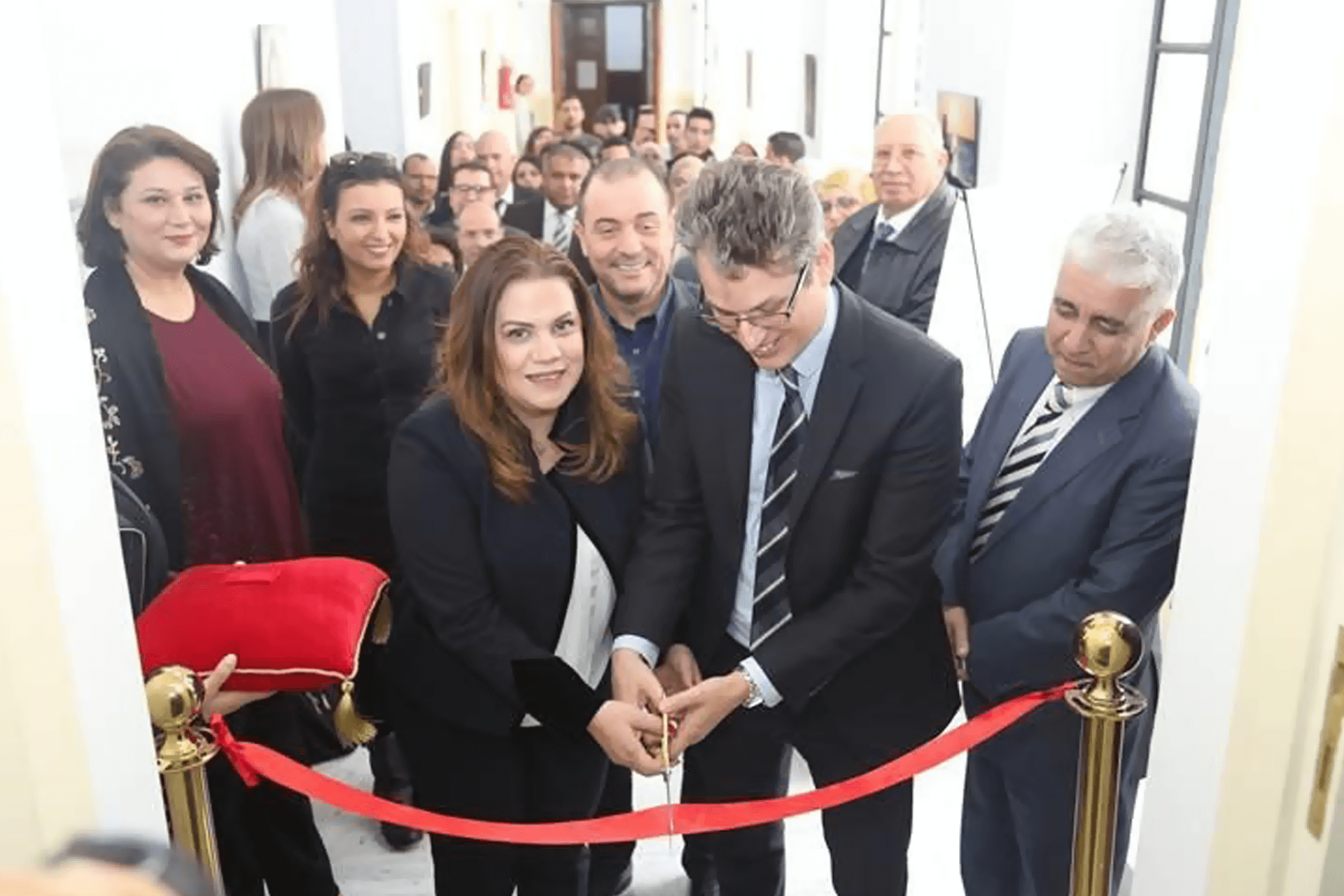
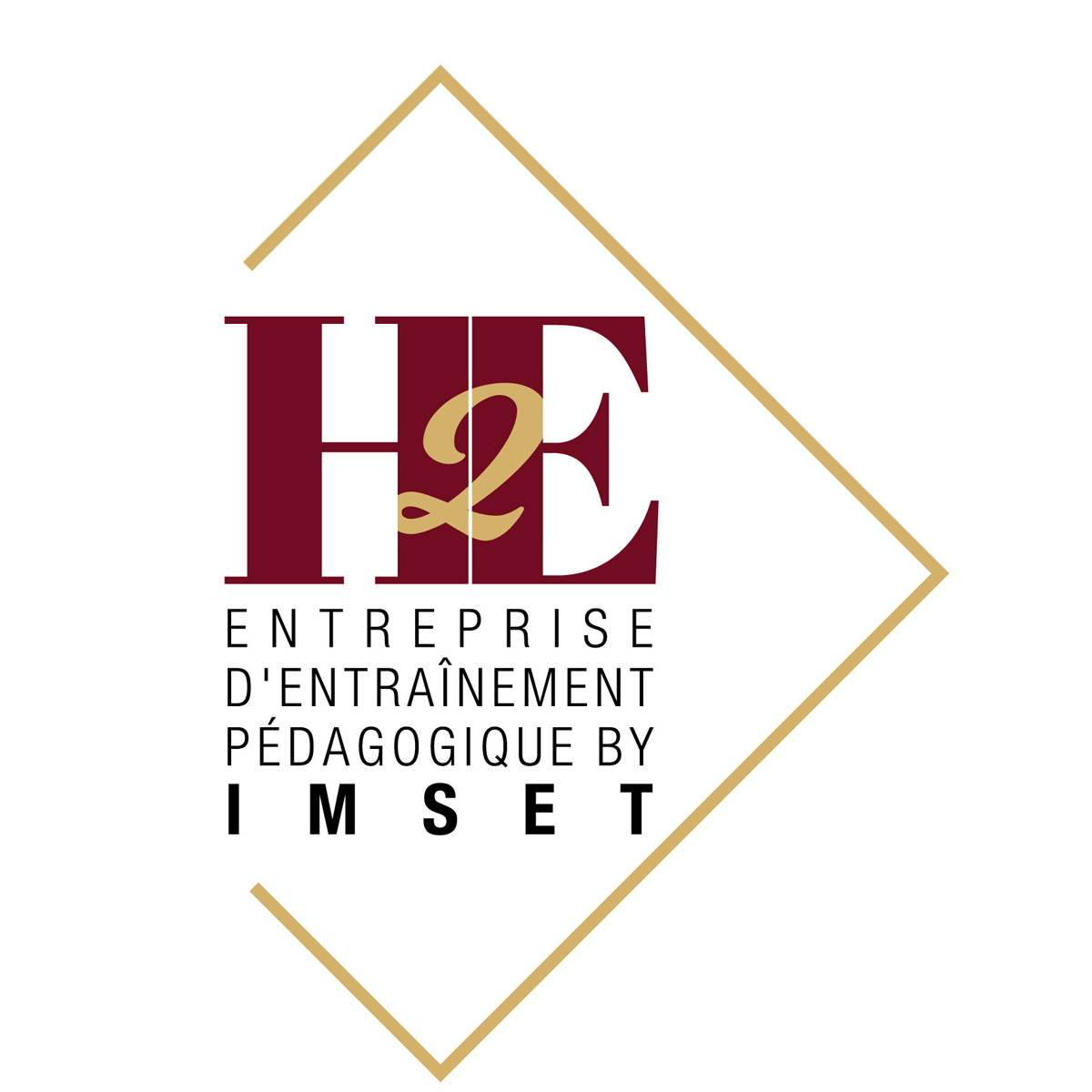
ReeT is the Network of Training Enterprises of Tunisia and it is a non-profit organization created through the collaboration between the Swiss foundation, Swisscontact, and the Swiss center of business practice, Helvartis. It is financed by the Swiss Cooperation and headed by the Ministry of Vocational Training and Employment of Tunisia. It is affiliated to the Tunisian network which ensures the accreditation and certification, the training company is also attached to a world network, which gathers more than 7000 companies of the same type allowing it to make transactions in a protected market... >>read more
In addition, entrepreneurship in higher education is recognized as a major driver to underpin innovation. Therefore, Honoris appreciates the critical need to embed entrepreneurship within education and learning opportunities to create environments within which entrepreneurial mindsets and behaviors are developed.
It is a known fact that there is a direct correlation between a country’s economic trajectory and the level of its entrepreneurial activity. The World Bank’s Small and Micro Enterprises (SME) report of 2019 highlighted that SMEs contribute up to 40% of the gross domestic product in Africa.


